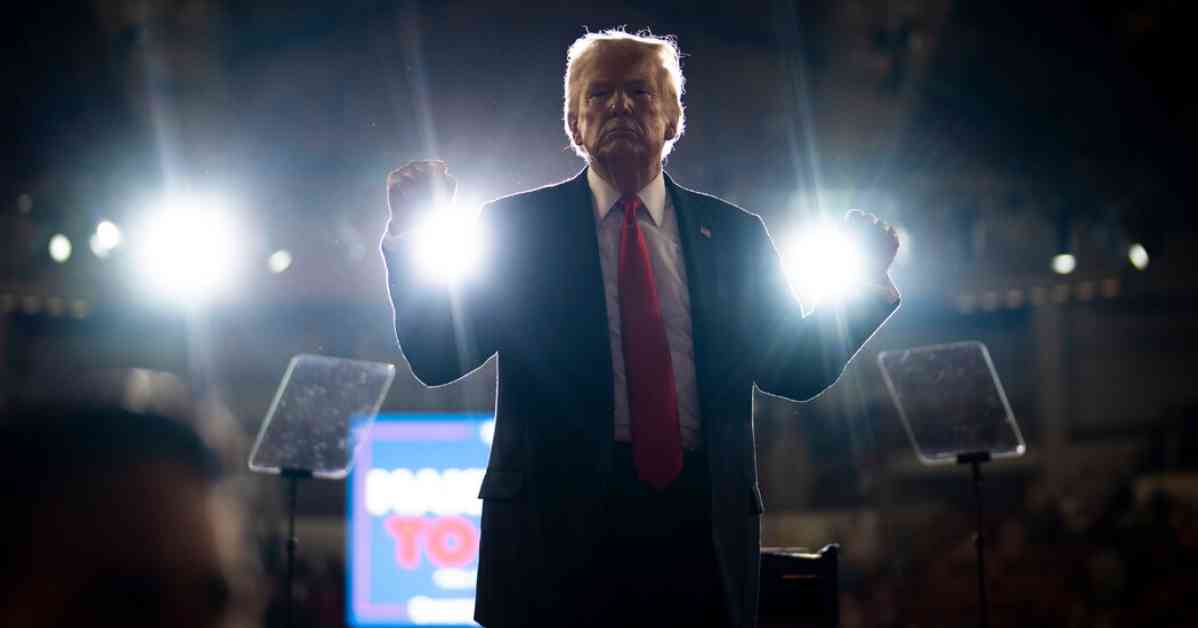The Potential Transformation of the Republican Party Post-Trump Era
The upcoming election has put the spotlight on the future of the Republican Party, especially if Donald Trump loses. With Trump currently behind in key swing states and facing a tough road to reelection, it’s worth considering what the GOP might look like in a post-Trump era.
Historically, American political parties have been shaped by dominant figures who either delivered electoral victories or left a lasting impact on the party’s identity. Trump, however, has managed to reshape the Republican Party without securing consistent wins. His unexpected victory in 2016 was followed by a series of losses in subsequent elections, leaving many Republicans questioning their allegiance to the former president.
One of the key challenges facing the GOP is the lack of a coherent platform or governing agenda under Trump’s leadership. Instead of developing policies based on principles or ideology, Trump has relied on divisive rhetoric and personal grievances to drive his political agenda. This has alienated moderate voters and pushed the party further to the right, with candidates like Kari Lake in Arizona and Doug Mastriano in Pennsylvania embracing Trump’s extreme positions at the risk of losing broader appeal.
The Impact of Trump’s Leadership on the Republican Party
Trump’s leadership style has also eroded the traditional boundaries between the far-right fringe and the mainstream of the Republican Party. By promoting conspiracy theories and embracing violent rhetoric, Trump has emboldened extremist elements within the party who reject democratic norms and openly advocate for violence against their political opponents. This shift has raised concerns about the party’s ability to maintain a cohesive identity and appeal to a broader base of voters.
The lack of a clear agenda or governing philosophy has further exacerbated the challenges facing the GOP in a post-Trump era. Without a unifying vision or set of principles, the party risks splintering into competing factions and losing its ability to effectively govern or mobilize support. This uncertainty has left many Republicans grappling with their future role in a party that seems to be adrift without a clear direction.
Potential Paths for the Republican Party After Trump
If Trump loses the election, the Republican Party will face a critical juncture in its history. It will need to decide whether to continue down the path set by Trump or chart a new course that reflects a broader vision for the party’s future. This decision will have far-reaching implications for the GOP’s electoral prospects and ability to govern effectively in the years to come.
One possible outcome is a realignment of the Republican Party around a more traditional conservative platform that focuses on issues like fiscal responsibility, limited government, and free-market principles. This approach could help the party rebuild its credibility with moderate voters and appeal to a broader cross-section of the electorate. However, it would require a significant break from Trump’s brand of politics and a willingness to confront the more extreme elements within the party.
Another option is for the Republican Party to double down on Trumpism and continue to embrace his divisive rhetoric and conspiracy theories. This approach may energize the party’s base and rally support from die-hard Trump supporters, but it risks further alienating moderate voters and deepening the party’s image problem. It could also lead to continued losses in future elections as the party struggles to expand its appeal beyond a narrow segment of the electorate.
Ultimately, the future of the Republican Party will depend on how it navigates the post-Trump landscape and responds to the challenges facing the party. Whether it chooses to embrace Trumpism or chart a new course, the GOP will need to grapple with its identity and values in order to remain a viable political force in the years to come.














